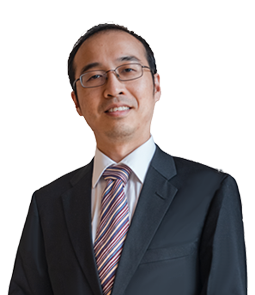Events
Oct 25, 2024
Seminar (2024-10-25)
School of Biomedical Sciences cordially invites you to join the following seminar:
Speaker: Professor Ke Zhang, Junior Principal Investigator, Institute of Neurological and Psychiatric Disorders, Shenzhen Bay Laboratory
Talk Title: Targeting stress granules for ALS and FTD
Date: 25 October 2024 (Friday)
Time: 4:00 pm – 5:00 pm
Venue: Seminar Room 3, G/F, Laboratory Block, 21 Sassoon Road
Host: Professor Ralf Jauch
Biography

Professor Ke Zhang is a junior PI in the Institute of Neurological and Psychiatric Disorders at Shenzhen Bay Laboratory. He obtained his B.S. degree at Tsinghua University and his Ph.D. degree at Baylor College of Medicine. After that, he continued his research in neurodegenerative diseases, especially amyotrophic lateral sclerosis and frontotemporal dementia for his postdoctoral training and independent research as an Assistant Professor in the US. In 2022, he returned to China and joined Shenzhen Bay Laboratory. Currently, his research program focuses on two themes: neurodegenerative and hereditary neurodevelopmental disorders. His team uses animals and patient iPSC-derived neurons as models to dissect pathomechanism and develop novel therapeutics. He has published ~30 papers with more than 4,000 citations. He has received several international and national awards, including the Frick Foundation for ALS Research Award (2020), the Springboard Fellowship Award from Target ALS Foundation (2018), etc.
Abstract
TDP-43 aggregation is a pathological hallmark of almost all amyotrophic lateral sclerosis (ALS) and ~50% of frontotemporal dementia (FTD) cases. However, how TDP-43 aggregates in ALS and FTD is unclear. Previous studies suggested a critical role of stress granules, RNA/protein condensates assembled in cells under stress, in this process. Consistent with this notion, we and others showed that inhibiting stress granule assembly suppresses neurodegeneration in multiple models of ALS/FTD, suggesting the potential of stress granules as a therapeutic target.
Despite this potential, how to target stress granules is unclear. Using Drosophila, human immortalized cell lines, mouse, and patient induced pluripotent stem cell (iPSC)-derived neurons (iPSNs) as models, we seek to understand how stress granules are regulated and identify ways to target their assembly. Our long-term goal is to translate our findings to clinics to develop novel therapeutic approaches for these deadly diseases.
ALL ARE WELCOME
Should you have any enquiries, please feel free to contact Miss Crystal Chan at 3917 6830.

